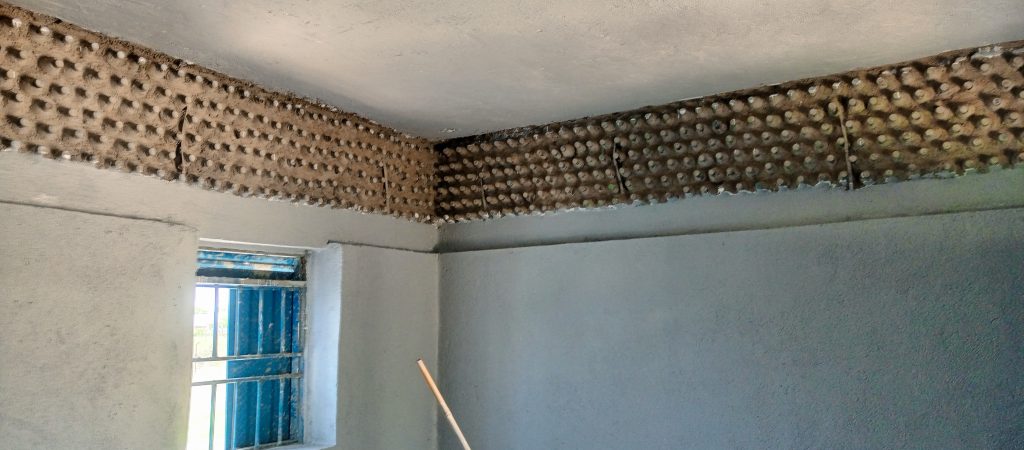Explore how the Salesian Sisters of Don Bosco in South Sudan are pioneering a circular economy by using waste plastic bottles for sustainable construction.
In South Sudan, amidst the backdrop of ongoing conflict and a humanitarian crisis that continues to displace thousands and complicating access to clear water, a unique construction project is bringing hope and stability. Guided by the Salesian Sisters of Don Bosco in Gumbo, this endeavor goes beyond building structures—it pioneers the principles of a circular economy through the unexpected use of waste plastic bottles into valuable building materials.
The project, “Use of Waste Plastic Bottles in Construction,” exemplifies a commitment to sustainable development by converting everyday waste into valuable building materials. This method reduces environmental impact and addresses the critical issue of housing in poverty-stricken areas. Plastic bottles, abundant due to a lack of access to clean drinking water amidst conflict, are filled with sand to serve as an alternative to traditional bricks. This approach creates sturdy, cost-effective, and environmentally friendly homes.
Sister Lourdes Hermoso, one of the project’s leaders, describes the initiative as a source of hope. “We are not just building homes; we are building futures,” she explains. The project not only constructs walls but also lays the foundations for self-reliance, teaching valuable skills to those involved, including vulnerable children who assist in gathering materials and building.

Plastic bottles are filled with sand, stacked, and bound together to form the walls of buildings, covered with a layer of cement to ensure stability and durability. This approach recycles waste and cuts down construction costs and energy use associated with traditional building materials like bricks and concrete.
This project is a quintessential example of a circular economy in action. It tackles significant urban challenges like pollution and waste management by repurposing non-biodegradable plastic bottles. This innovative reuse of plastic not only mitigates these risks but also promotes a model where materials are continuously recycled, reducing the reliance on new resources and minimizing waste outputs.
Comparative studies cited in the project report highlight the advantages of this method over conventional construction. Plastic bottle buildings have a high compressive strength, are earthquake resistant due to their lightweight, and offer better insulation properties, making them suitable for the variable climates of South Sudan.

Moreover, the environmental benefits are noteworthy. “Using these bottles, we see a reduction in CO2 emissions and a decrease in the energy typically consumed in the manufacturing of conventional building materials,” notes Sister Doniesia, another project leader. The project aligns with global sustainability goals by conserving non-renewable resources and improving the quality of life for its beneficiaries.
As the Salesian Sisters of Don Bosco continue to expand this project, they not only construct buildings but also hope, demonstrating that from small bottles, big changes can emerge.